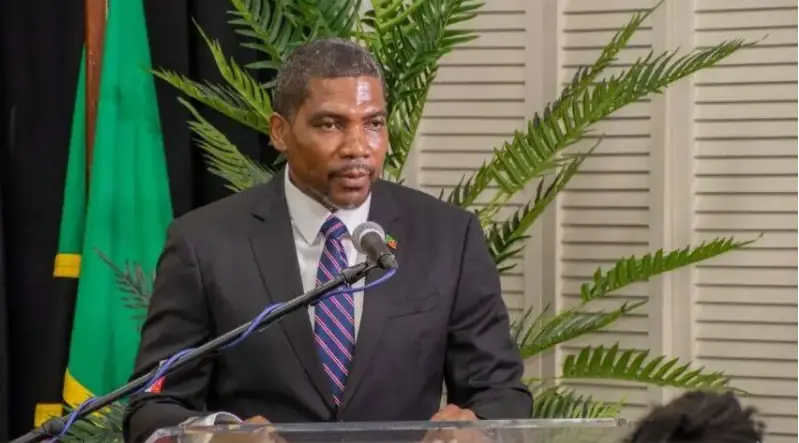Reports uncover propaganda of BBC, Huawei; know here
The UK newspaper The Spectator uncovered a cash-for-propaganda agreement between the British Broadcasting Corporation (BBC) and the Chinese tech firm Huawei.
2nd of February 2023

London, United Kingdom: The UK newspaper The Spectator uncovered a cash-for-propaganda agreement between the British Broadcasting Corporation (BBC) and the Chinese tech firm Huawei.
In a piece from The Spectator, gossip columnist Steerpike claimed that the BBC had formed some dubious new corporate relationships as a result of budget cuts and the uncertain future of the licence fee.
One of them is with Huawei, a leading Chinese technology company that the US sanctioned in 2019 and which, because of security concerns, the UK prohibited from its 5G network in 2020, according to Steerpike.
A recent BBC documentary on the 2002 Godhra riots, “India: The Modi Question,” which examined the involvement of then-Gujarat Chief Minister and current Indian Prime Minister Narendra Modi, sparked controversy in India.
The BBC programme has drawn criticism from the Indian government. Arindam Bagchi, a spokeswoman for the foreign ministry, claimed it lacked objectivity and was “propaganda.”
Mahesh Jethmalani, a Rajya Sabha member and a top Supreme Court lawyer, also claimed that BBC got funding from Huawei, a prominent Chinese technology company, to support its global journalism endeavours, causing a significant uproar.
Jethmalani tweeted, “Why is BBC such a hater of India? Because it needs money so badly that it will steal it from Huawei, a company with ties to the Chinese government, in order to further that company’s goals (BBC is a fellow traveller, Comrade Jairam? Simple money-for-propaganda exchange is involved. The BBC is available for sale.”
He also made fun of the BBC for producing an incomplete map of India that failed to include Jammu and Kashmir.
“The #BBC has a lengthy history of propagating misinformation about India, aside from showing a truncated map of the country without J&K until 2021, when it apologised to the Indian government and rectified the map. He remarked that the anti-PM documentary was a continuation of this dishonest pattern,” he added.
Additionally, according to The Spectator, BBC has been accused of helping the Chinese government develop surveillance technology that specifically targets the nation’s Uyghur minority population after the contract with Huawei.
BBC continues to accept funds from Huawei to support its international journalism. Under the condition of anonymity, a current employee told Steerpike they were “shocked” the BBC was continuing to accept funding from a business with such strong ties to the Chinese government “since it was us (the Corporation) who uncovered the Chinese abuse in Uyghur camps last year.”
Additionally, advertisements this week on BBC.com boast of “The new frontier of education: How can we bridge the education divide and bring brilliant young minds into the digital future” and are sponsored and hosted by Huawei.
The advertisements wax lyrical about how “UNESCO, as well as Huawei, are focused on closing the digital divide” and extol Huawei’s technological endeavours.
However, such content is only accessible to readers outside of the UK since they are met with a message that reads, “We’re Sorry! Because it is a component of our foreign service and is not supported by the licence fee, this site is inaccessible from the UK, according to The Spectator.
The BBC’s international news and sports website, BBC.com, is funded by advertising outside of the United Kingdom, according to a representative for BBC Studios. This enables us to spend money on our top-notch content and distribute it to a worldwide audience. Our openly published advertising and sponsorship guidelines must be followed by any commercial content.
The Corporation refused to answer additional inquiries and would not disclose how much money it had earned from its collaboration with Huawei, according to The Spectator.
The Washington Post examined a set of marketing presentation slides in December and discovered Huawei was involved in the creation of espionage projects in collaboration with other Chinese businesses.
They included voice recording analysis, surveillance of detention facilities, tracking the whereabouts of politically significant individuals, police surveillance in western Xinjiang, and business tracking of staff and clients.
According to Huawei, it was unaware of the projects detailed in the Post article. The telecom behemoth has consistently denied any control or ties to the Chinese government.
Latest
- Antigua and Barbuda by-election: ABLP’s Randy Baltimore begins door-to-door campaign
-
Nevis sees surge in cruise arrivals as 2025-26 season continues -
National School Meals Programme rejects claims of substandard vegetarian meal in Antigua and Barbuda -
LIAT Air Expands Caribbean Network with New Routes to Antigua and Montego Bay -
US withdraws advisory on St. Kitts and Nevis, gives green flag to its Citizenship Programme
Related Articles


5th of December 2024

5th of December 2024

4th of December 2024

29th of November 2024

24th of November 2024

24th of November 2024

